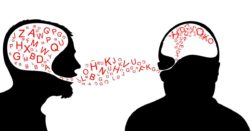Source of article The Jury Room - Keene Trial Consulting.
 When we began this blog in 2009, the reality that facts don’t matter was one of the first posts we wrote. We wrote again about this reality back in 2011. And we’ve written about it several times since then so…here we go again!
When we began this blog in 2009, the reality that facts don’t matter was one of the first posts we wrote. We wrote again about this reality back in 2011. And we’ve written about it several times since then so…here we go again!
In this new era of fake news and fake news allegations, we’ve seen a surge in the number of “fact checkers” employed by the media to verify accuracy of statements made by people in this country’s leadership. Some think the publicizing of fact checking can be effective against the spread of misinformation. New research (conducted during the 2016 Presidential election) tells us (yet again) that while fact checking is certainly of value, it depends on whether your intended audience is listening.
That is, while fact checking helped study participants understand what was true and not true, that knowledge made no difference in their voting behavior.
While that disturbing reality sinks in, here’s a brief summary of the research which was published by the Royal Society Open Science Journal and concentrated on statements (both factual and inaccurate) made by candidate Trump during the Republican primary campaign of 2016. The researchers conducted their research online with 2,023 participants. As part of the study, participants were presented with four inaccurate statements and four accurate statements made by candidate Trump (you can see the list of statements in the article itself, but they include misstatements on the unemployment rate and the relationship between vaccines and autism). Sometimes the statements were attributed to Trump and other times they were not attributed to any of the candidates. Then, inaccurate statements were corrected using non-partisan sources such as the Bureau of Labor Statistics. So far so good. When the researchers corrected the false statements, belief in those statements fell across the board.
That is, belief in the Trump falsehoods fell for Trump-supporting Republicans, Republicans favoring other candidates, and for Democrats.
However, the researchers continued on and examined who the supporters intended to vote for—and the correction of misinformation (and reported self-awareness of the inaccuracy of the statements) made no difference in for whom the Republican participant planned to vote. The only participants less likely to vote for Trump were the Democrats (who’d not planned to vote for him anyway).
The researchers conclude that while fact-checking can change people’s beliefs, their strength of partisanship has an effect on the strength of the change when it comes to voting intention. And, perhaps not surprisingly, the researchers wonder just what would have to happen to change voting intention in the face of strong partisan beliefs. They suggest that people “use political figures as a heuristic to guide evaluation of what is true or false, yet do not necessarily insist on veracity as a prerequisite for supporting political candidates”.
If you don’t think that makes sense, you are not alone (we don’t think it makes much sense either). For years, we have believed (and seen it borne out time after time) that political affiliation is not a difference that makes a difference when it comes to decision-making on litigation cases. Yet, we are seeing increasing amounts of research telling us the USA is so split along partisan lines that perhaps, at least right now, it is a difference that makes a difference. We still have not seen it in our work but you can bet we are watching it closely in ongoing pretrial research. Stay tuned.
Swire, B., Berinsky, A., Lewandowsky, S., & Ecker, U. (2017). Processing political misinformation: comprehending the Trump phenomenon. Royal Society Open Science, 4 (3) DOI: 10.1098/rsos.160802
